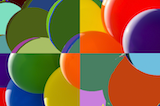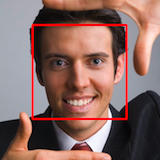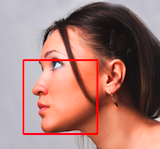Events
2012
05
Nov
Organisers:
Gregor Miller and Sidney Fels
Venue:
Asian Conference on Computer Vision (ACCV2012)
Daejeon, South Korea, 5th-9th November 2012
Daejeon, South Korea, 5th-9th November 2012
The majority of research in computer vision is focused on technology and systems which advance the state-of-the-art, however there is very little focus on how we can make the state-of-the-art useable by the majority of people. Recently there has been an increased interest in "Vision for HCI", and how we use computer vision to interact with the world. We propose a parallel theme of "HCI for Vision" for this workshop, looking at how to provide accessible computer vision targeted towards general software developers. We would like to explore ideas which take existing vision methods and present them in a manner where users with varying degrees of vision knowledge may use them.
2012
11
Jun
Presenters:
Gregor Miller and Sidney Fels
Venue:
AMD Fusion Developer Summit (AFDS2012)
Bellevue, Washington, U.S.A., 11th-14th June 2012
Bellevue, Washington, U.S.A., 11th-14th June 2012
Current computer vision frameworks present APIs as lists of specific methods, which requires deep algorithmic knowledge to apply effectively in the real world. We present OpenVL, a high-level abstraction with a task-based interface which does not require extensive knowledge of or experience with vision methods. Instead we require developers to have enough knowledge of a task to accurately describe it using our interface. The description is analysed and used to invoke the appropriate algorithm and provide a solution. The underlying implementation can be optimised on combinations of CPU and GPU. The OpenVL model can describe many tasks, such as segmentation, correspondence, registration, detection, optical flow and tracking, and we will present working examples for each. We believe the adoption of the developer-friendly OpenVL interface and AMD hardware for acceleration will dramatically increase the application of computer vision technology by developers.
We will be demonstrating the latest version of OpenVL at the Summit: if you would like to see the demos or take a look at the code/interface/API, please get in touch!
We will be demonstrating the latest version of OpenVL at the Summit: if you would like to see the demos or take a look at the code/interface/API, please get in touch!
2012
02
May
Presenter:
Gregor Miller
Venue:
Graphics, Animation and New Media (GRAND2012)
Montreal, Canada, 2nd-4th May 2012
Montreal, Canada, 2nd-4th May 2012
GRAND 2012 will showcase a multi-disciplinary program of research and innovation across the broad spectrum of digital media topics and issues, with presentations from researchers across Canada. Gregor Miller is co-chair for the Research Notes session.
A demonstration of OpenVL will be available, showcasing examples of segmentation, object detection, correspondence search, image registration and optical flow.
A demonstration of OpenVL will be available, showcasing examples of segmentation, object detection, correspondence search, image registration and optical flow.
2013
15
May
Presenter:
Gregor Miller
Venue:
Graphics, Animation and New Media (GRAND2013)
Toronto, Canada, 14th-16th May 2012
Toronto, Canada, 14th-16th May 2012
GRAND 2013 will showcase a multi-disciplinary program of research and innovation across the broad spectrum of digital media topics and issues, with presentations from researchers across Canada.
A demonstration of OpenVL will be available, showcasing examples of segmentation, object detection, correspondence search, image registration and optical flow.
A demonstration of OpenVL will be available, showcasing examples of segmentation, object detection, correspondence search, image registration and optical flow.
2011
07
Jan
Organisers:
Gregor Miller (General Chair), Daesik Jang (Programme Chair)
Venue:
Winter Vision Meetings (WVM2011)
Keauhou, Kailua-Kona, U.S.A., 5th-7th January 2011
Keauhou, Kailua-Kona, U.S.A., 5th-7th January 2011
Website:
The majority of researchers in computer vision focus on technology and systems which advance the state-of-the-art, however there is very little focus on how we can make the state-of-the-art useable by the majority of "ordinary" people. Additionally, more research is required to provide interactive or accessible techniques to address the shortcomings in current computer vision solutions.
Developing methods to make computer vision accessible poses many interesting questions and will require novel approaches to the problems. This one day workshop will bring together researchers in the fields of accessible and interactive computer vision to discuss the state-of-the-art and the direction of research.
As part of the Winter Vision Meetings I organised the Workshop on Person-Oriented Vision which was held in Keauhou, Kailua-Kona, Hawai'i on the 7th of January 2011. The workshop highlighted ongoing research in accessible and interactive computer vision, as well as providing an opportunity for discussions on new directions for the field. We invited work on the following topics:
The workshop was held in Keauhou, Kailua-Kona, Hawai'i on 7th January 2011 as part of the Winter Vision Meetings.
Developing methods to make computer vision accessible poses many interesting questions and will require novel approaches to the problems. This one day workshop will bring together researchers in the fields of accessible and interactive computer vision to discuss the state-of-the-art and the direction of research.
As part of the Winter Vision Meetings I organised the Workshop on Person-Oriented Vision which was held in Keauhou, Kailua-Kona, Hawai'i on the 7th of January 2011. The workshop highlighted ongoing research in accessible and interactive computer vision, as well as providing an opportunity for discussions on new directions for the field. We invited work on the following topics:
- Transforming CV problems to exploit meaningful user interaction
- High-level abstractions of vision algorithms
- Automatic or interactive algorithm selection based on user input
- Detection/tracking/recognition of a physical person as input to an interactive system
- Interpretation of user input such as descriptions, sketches, images or video
- Automatic or interactive parameter tuning for vision algorithms
- Case studies on "Person-Oriented" CV
- Vision systems designed for use by non-experts
- Interactive/supervised correction of weaknesses in the current state-of-the-art
The workshop was held in Keauhou, Kailua-Kona, Hawai'i on 7th January 2011 as part of the Winter Vision Meetings.
2013
07
Jan
Organisers:
Gregor Miller (General Chair)
Daesik Jang and Kenji Mase (Programme Chairs)
Daesik Jang and Kenji Mase (Programme Chairs)
Venue:
Winter Vision Meetings (WVM2013)
Tampa, Florida, U.S.A., 15th-17th January 2013
Tampa, Florida, U.S.A., 15th-17th January 2013
Website:
OpenVL proudly sponsors the 1st Workshop on User-Centred Computer Vision (UCCV'13), to be held as part of the IEEE Winter Vision Meetings in Tampa, Florida, U.S.A. in January 2013. UCCV is a one day workshop intended to provide a forum to discuss the creation of intuitive, interactive and accessible computer vision technologies.
The majority of researchers in computer vision focus on advancing the state-of-the-art in algorithms and methods; there is very little focus on how the state-of-the-art can be usefully presented to the majority of people. Research is required to provide new technology to address the shortcomings in the usability of computer vision.
The majority of researchers in computer vision focus on advancing the state-of-the-art in algorithms and methods; there is very little focus on how the state-of-the-art can be usefully presented to the majority of people. Research is required to provide new technology to address the shortcomings in the usability of computer vision.









